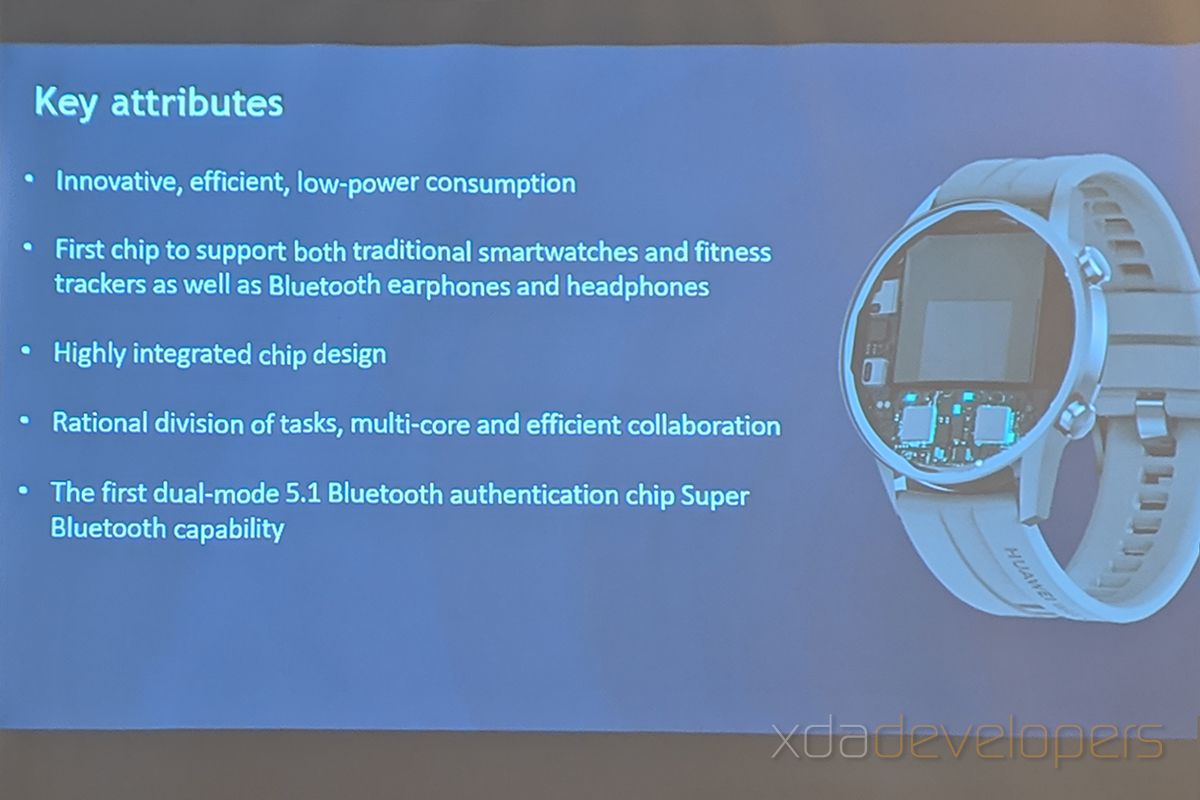The uncertainty due to the Sino-US trade conflict has led to much confusion about GMS (Google Mobile Services) support on Huawei and Honor smartphones. Despite exciting announcements like the Huawei Mate 30 Pro and the Honor 9X, the availability of these smartphones has been limited to only certain regions. However, the pace of innovation hasn't dialed down even a bit and Huawei has been working on its first-part operating system called Harmony OS, which would be a backup option if official GMS support does not return to Huawei and Honor smartphones. Meanwhile, they are also vying to build their own ecosystem of accessories and smart wearables, and has developed the Kirin A1 SoC dedicated to the category of products.
The Kirin A1 chipset is not dedicated to a specific type of product and can be used to drive a wide array of wearables. The Huawei FreeBuds 3 and the Watch GT 2 are two of the products that already use the chipset and Huawei intends to launch more products like AR Glasses, over-the-year as well as neckband-style wireless headsets, and Bluetooth speakers. Huawei will be launching some products with the Kirin A1 chipset next month in India.
The key highlights of the Kirin A1 chipset include a dual-chip design and support for Bluetooth 5.1 and BLE 5.1 protocols. The latter helps the Kirin A1 switch back to the low-energy mode whenever possible, thereby resulting in power consumption as low as 10mA per MHz which, as per Huawei, is nearly one-third of similar wearable-centric chips from other manufacturers. For truly wireless earphones, the chipset supports isochronous Bluetooth connectivity which means that both of the earbuds can connect to the input source independently. The range of Bluetooth connections on devices using this chip is 150 meters (~500 ft / 165 yards).



Huawei's Kirin A1 chip uses a single-core Arm Cortex M7 processor with a maximum frequency of 200MHz. The 4.3 x 4.4 mm die consists of a Bluetooth chip, an audio processing unit, a "low-power" application processor, and a power management unit. Huawei says the chipset is designed to deliver accurate readings and low-latency readings from multiple sensors and high-quality aural experience on audio accessories.
The first products with the Kirin A1 will be coming to India next month which is when we'll be able to test these claims about power efficiency and low latency.
Update: Huawei announced the launch date for Watch GT2 in India

Huawei has sent out media invites for the launch of the Huawei Watch GT2 in India. The event is scheduled for December 5, 2019, and in the creative, Huawei is boasting about the Watch GT2's two-week-long battery life. We're not sure of the variants that will be launched in India, or the pricing. Internationally, the Watch GT2 starts at $199.
The post [Update: Watch GT2 launch date] Huawei Kirin A1, Huawei's first dedicated chipset for wearables, will launch in India next month appeared first on xda-developers.

No comments:
Post a Comment